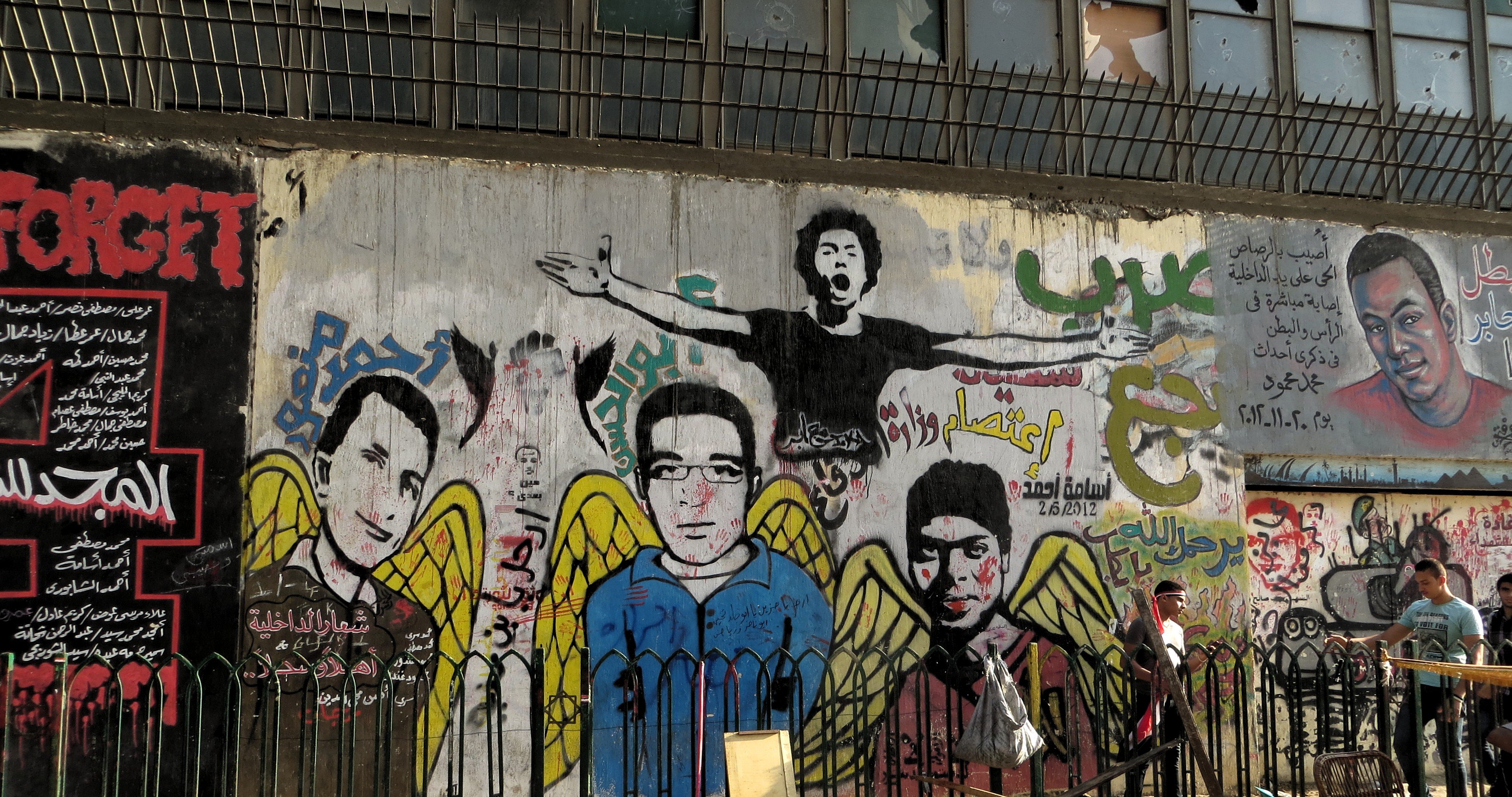Issue 23, winter/spring 2017 https://doi.org/10.70090/CEK17SCF This essay is part of an ethnographic study of Egyptian film production conducted between August 2013 and September 2015. The study is centered on participant observation within two main film companies, New Century Film Production and Al-Batrik Art Production, in addition to interviews conducted with …
Read More »Peer Reviewed Scholarship
تأثير العوامل النفسية والاجتماعية في استعداد الشباب للتعبير العلني عن آرائهم السياسية نحو الأزمة اليمنية – دراسة مسحية
عبدالله عمر أحمد بخاش - صحافي وباحث في الاتصال السياسي لا ينحصر دور وسائل الإعلام في عرض المعلومات والصور، بل يتعدى ذلك إلى القدرة على تشكيل الآراء ووجهات النظر، حول القضايا التي تحدث في مختلف أنحاء العالم، ولهذه الغاية، يفترض أن تعطي صورة عادلة عن أية قضية تحدث على المستويين المحلي …
اقرا المزيد »ملامح الثقافة الأسرية في الإعلام الجديد.. دراسة تحليلية على مجلة الأسرة السعيدة
Issue 23, winter/spring 2017 https://doi.org/10.70090/AAAB17FC د. ثريا السنوسي- أستاذ مساعد ورئيس قسم العلاقات العامة بكلية الإعلام-جامعة الغرير، دبي. غيرت وسائل الاتصال الحديثة والطفرة التكنولوجية التي حدثت في السنوات الأخيرة، معالم كثيرة في حياتنا الاجتماعية والمهنية والثقافية والعائلية؛ فهذه التحولات التكنولوجية المتسارعة التي لم يستوعبها مجتمعنا - بحسب عدد من الخبراء …
اقرا المزيد »The Birth and Death of 25TV: Innovation in Post-Revolution Egyptian TV News Formats
Issue 23, winter/spring 2017 https://doi.org/10.70090/DI17BD25 Abstract This case study highlights an experiment that aimed to disrupt traditional television news production and presentation models in post-revolution Egypt. It is a snapshot of a brief moment in Egyptian television history when an attempt was made at innovating news production and content, but …
Read More »المعالجة البحثية والتنظيرية لاستخدام تكنولوجيا الإعلام الجديد لنشر ثقافة العنف
Issue 23, winter/spring 2017 https://doi.org/10.70090/HNES17RU د. حسن نيازي الصيفى- أستاذ العلاقات العامة والإعلان المشارك، جامعة الملك فيصل بالمملكة العربية السعودية. نظرا لشعبية وزيادة استخدام شبكة الإنترنت، اتجه المتطرفون والجماعات الإرهابية - وعلى رأسهم داعش - إلى استغلال الإعلام الجديد كوسيلة جديدة وقوية لنشر ثقافة العنف والدعاية للإرهاب وتجنيد الأتباع واستدراج الشباب، …
اقرا المزيد »عرض وقراءة فى كتاب الدراما الأجنبية وانحرافات المراهقين السلوكية
Issue 23, winter/spring 2017 https://doi.org/10.70090/MEN17FDC د.مصطفى النمر- أستاذ مساعد بكلية الإعلام والاتصال، جامعة الإمام بالرياض، المملكة العربية السعودية. صدر مؤخراً عن دار العربي للنشر والتوزيع بالقاهرة كتاباً تحت عنوان: الدراما الأجنبية وانحرافات المراهقين السلوكية، يستعرض فيه الباحث دراسة علمية ترصد العلاقة بين تأثير الدراما الأجنبية والبناء الثقافى لدى المراهقين، حيث ذهب الكتاب …
اقرا المزيد »Revolutionary Art or “Revolutonizing Art”? Making Art on the Streets of Cairo
Issue 23, winter/spring 2017 https://doi.org/10.70090/RARB17RA In an article published on December 17, 2014, Surti Singh, an Assistant Professor of Philosophy at the American University in Cairo (AUC), wrote that “a new set of questions is crystallizing about the role of art in contemporary Egypt” and posed the following questions: “Can …
Read More »العلاقة بين الاعتماد على تكنولوجيا الاتصال وتعزيز الهوية الاجتماعية للمصريين – دراسة مسحية
Issue 23, winter/spring 2017 https://doi.org/10.70090/SAEB17TD د. ثريا أحمد البدوى- أستاذ بكلية الإعلام، جامعة القاهرة يرتكز مفهوم الهوية الاجتماعية على السياق الثقافي والاجتماعي للمجتمع؛ حيث ترتبط عملية تعزيز الهوية بقنوات التنشئة الاجتماعية وتكنولوجيا الاتصال المجتمعية اللذين يسهمان فى الحفاظ على تماسك المجتمع، ويقويان الشعور بالانتماء، ويرفعان من معدلات المشاركة النشطة. فى …
اقرا المزيد »تأثير التحولات في ثقافة غرف الأخبار والبيئة التنظيمية الجديدة على أجندة البحث العلمي في حقل دراسات إدارة المؤسسات الصحفية واقتصادياتها: رؤية تحليلية نقدية
Issue 23, winter/spring 2017 https://doi.org/10.70090/MHG17MEC د. محرز حسين غالي- أستاذ الصحافة المساعد بكلية الإعلام جامعة القاهرة. يدور موضوع هذه الدراسة حول تأثير التحولات في ثقافة غرف الأخبار والبيئة التنظيمية الجديدة على أجندة الاتجاهات العالمية الحديثة في بحوث إدارة المؤسسات الصحفية واقتصادياتها في المجتمعات المعاصرة، في إطار المداس الأكاديمية المختلفة، وذلك من …
اقرا المزيد »التعرف على آراء أساتذة الإعلام في استخدام القنوات التليفزيونية شبكات التواصل الاجتماعي للتغطية الشاملة للأحداث
Issue 23, winter/spring 2017 https://doi.org/10.70090/AA17UAPS د.إيمان عرفات- أستاذ مساعد بقسم الاتصال والإعلام، جامعة طيبة، المدينة المنورة، المملكة العربية السعودية. أصبحت قنوات التليفزيون تستخدم وسائل التواصل الاجتماعي الجديدة بشكل متزايد، والتي يتمثل أهمها في الفيس بوك وتويتر؛ لإحداث تفاعل وللتعرف علي آراء الجمهور المنشورة عبرها، كما سعت قنوات التليفزيون بإنشاء هاشتاجات للبرامج …
اقرا المزيد » Arab Media & Society The Arab Media Hub
Arab Media & Society The Arab Media Hub

